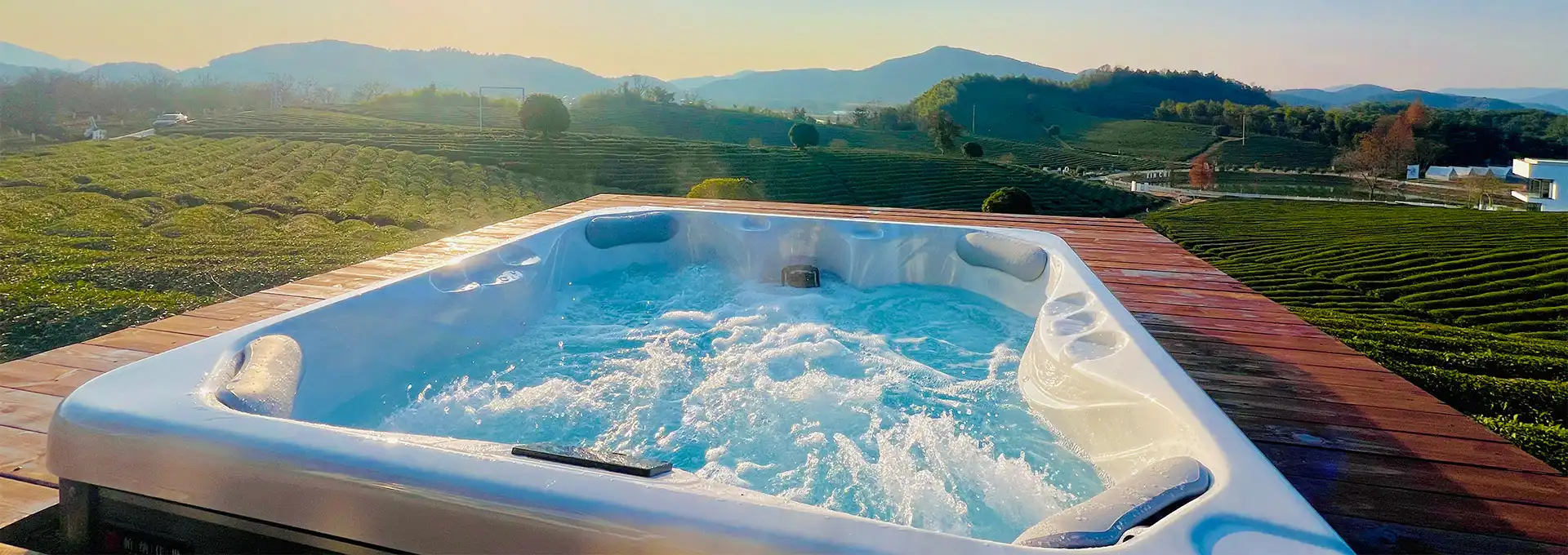The Ultimate Guide to Choosing the Best Spa Filter for Hard Water and Eco-Friendly Solutions
2025-10-30 09:54:26
Choosing the best spa filter is essential when managing hard water and seeking eco-friendly solutions. A spa filter plays a pivotal role in maintaining crystal-clear water by trapping debris, preventing scale buildup, and ensuring optimal water quality. For those invested in spas—whether distributors, hotels, or villa builders—understanding the nuances of spa filtration is critical to extending equipment longevity and providing excellent guest experiences. This guide addresses the core aspects of spa filters, with a focus on managing hard water challenges and embracing sustainability.
Understanding Spa Filters
What is a Spa Filter?
A spa filter serves as the primary defense against contaminants in spa water. It removes suspended particles like dirt, oils, and debris, ensuring the water remains hygienic and inviting. Without effective filtration, spas risk water quality degradation that can lead to equipment damage or unpleasant experiences for users. In many cases, filters also help control bacterial growth by enhancing water circulation and cleanliness. Diagrammatically, the filtration process involves water passing through layers that capture impurities while allowing clean water to return to the spa.
Types of Spa Filters
Selecting the right spa filter involves understanding the three main types available:
- Cartridge Filters: Popular for their ease of maintenance and ability to trap fine particles. These filters require regular cleaning but offer excellent water clarity, making them ideal for spas with moderate use.
- Sand Filters: Renowned for durability and cost-effectiveness, sand filters use a bed of specially graded sand to filter water. Though bulkier, they effectively handle larger debris and require less frequent servicing.
- DE (Diatomaceous Earth) Filters: Known for superior filtration down to microscopic levels, DE filters excel in water clarity but need careful handling and periodic backwashing.
Each filter type offers distinct advantages; the choice depends largely on spa size, usage frequency, and water conditions.
Spa Filters for Hard Water
Best Spa Filter for Hard Water
Hard water, rich in calcium and magnesium, presents unique challenges, including scale formation, which can clog filters and damage spa heaters or jets. Filters constructed from robust materials resistant to mineral buildup perform best under such conditions. Advances in filtration technology now allow some spa filters to inhibit scale while efficiently capturing hard water sediments.
Spa Filter Efficiency Comparison
Efficiency is a vital consideration for hard water spa filtration because it influences operational costs and water quality. Comparing filters involves evaluating parameters such as filtration micron rating, lifespan, flow rate, and resistance to clogging:
- Micron Rating: Filters with smaller micron ratings (5-10 microns) capture finer particles but may clog faster.
- Lifespan: Filters with durable materials accept prolonged use before replacement, reducing long-term costs.
- Flow Rate: Higher flow rates facilitate better water circulation, critical for spas with heavy usage.
- Clogging Resistance: Specialized coatings or backwashing capabilities help maintain performance even with mineral-heavy water.
Visual tools like efficiency charts can clarify these differences, empowering informed purchasing decisions.
Eco-Friendly Spa Filter Solutions
Eco-Friendly Spa Filters
Many spas aim to reduce their ecological footprint by employing filters that minimize energy consumption and water waste. Eco-friendly spa filters often utilize renewable or recyclable materials and optimize filtration to extend intervals between cleaning cycles. Some models incorporate biodegradable components or smart systems that adjust filtration based on water quality data. Case studies confirm these designs save significant energy—up to 30% less compared to traditional filters—and conserve thousands of gallons of water annually, aligning with sustainability goals.
Spa Filter Environmental Impact
The environmental impact of spa filters extends beyond energy use. Filters producing less waste and allowing easier recycling contribute significantly to waste reduction. For example, cartridge filters with washable designs minimize landfill contributions. Additionally, advanced designs that reduce chemical usage by improving filtration efficiency foster healthier aquatic ecosystems and promote water conservation. Environmental statistics emphasize that adopting eco-conscious filters can lower water wastage by up to 40%, a compelling argument for green spas.
Spa Filter Maintenance and Troubleshooting
How to Clean a Spa Filter
Consistent cleaning ensures peak spa filter performance and extends product life. The cleaning routine typically involves removing the filter cartridge or media, rinsing with a hose to dislodge trapped debris, and soaking in a specialized cleaning solution for deep grime removal. After drying, reinstalling the filter restores optimal function. Incorporating visual aids or tutorial videos can greatly assist spa owners in mastering this process.
Spa Filter Troubleshooting
Addressing common issues early prevents costly repairs. Signs that a spa filter requires attention include decreased water flow, louder pump noises, or cloudy water. Diagnosing these symptoms may involve:
- Checking for physical damage or tears in the cartridge
- Ensuring valves and connections are unobstructed
- Performing backwashing on sand or DE filters to clear blockages
Preparing a simple troubleshooting checklist or flowchart enables quick resolution and reduces spa downtime.
Conclusion
Selecting the ideal spa filter for hard water and eco-friendly purposes demands thoughtful consideration of filter type, efficiency, and environmental impact. Robust, technologically advanced filters mitigate scale issues while promoting sustainability by conserving water and energy. Consistent maintenance and choosing trusted brands elevate spa longevity and user satisfaction. Trusted manufacturers like iParnassus provide high-quality, innovative filtration solutions tailored for today’s spa industry requirements. Investing in the right spa filter not only preserves equipment but also ensures a flawless relaxation experience.
FAQ
Q1: How does a spa filter work?
A: A spa filter traps debris, oils, and impurities present in the spa’s circulating water, maintaining cleanliness and ensuring a safe, pleasant experience for users.
Q2: How often should I replace my spa filter?
A: Replacement frequency varies, but generally, spa filters should be swapped every 12 to 24 months, depending on usage intensity and maintenance habits.
Q3: What are the signs of a clogged spa filter?
A: Common signs include reduced water flow, louder pump noises, and cloudy or dirty water, indicating the filter isn’t functioning properly.
Your trusted spa filter manufacturer | iParnassus
Reliable spa filters designed for hard water and ecological efficiency can be sourced directly from iParnassus, a leading provider known for superior quality and innovative designs. Whether you represent a distributor, hotel, yacht club, or villa builder, iParnassus offers expert consultation and a broad product lineup to match your unique needs. Reach out by contacting us at info@iparnassus.com to inquire about prices, availability, and custom orders. Elevate your spa systems with trusted, high-performance spa filters today.
References
1. Smith, J. (2022). Advances in Spa Filtration Technology. Journal of Water Treatment, 15(3), 145-158.
2. Environmental Protection Agency. (2021). Energy Savings and Water Conservation in Recreational Facilities. EPA Reports.
3. Johnson, L., & Martinez, R. (2023). Managing Hard Water Challenges in Spa Systems. Water Quality Research Journal, 18(4), 210-225.
4. International Pool and Spa Expo. (2022). Guide to Spa Maintenance and Equipment Efficiency. Trade Publication.
5. Green Building Council. (2023). Sustainable Water Systems in Hospitality. Industry White Paper.
6. Williams, T. (2023). Comparative Study of Spa Filter Brands in North America. Consumer Reports—Home & Garden Section.
_1768872582663.webp)


